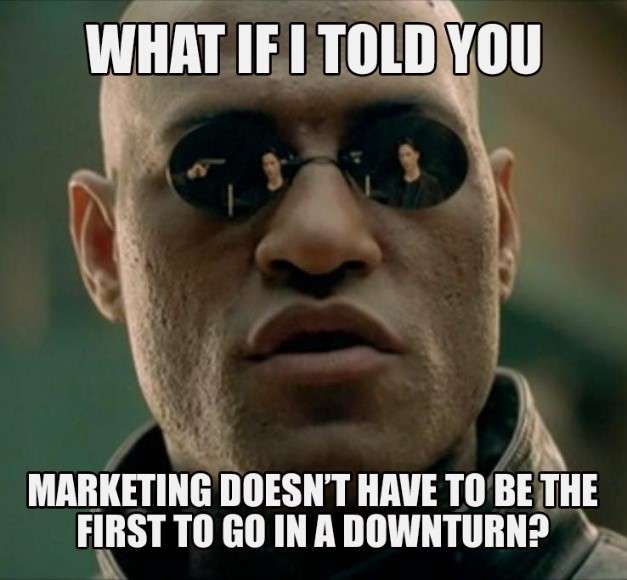“It’s not in the budget this year.” No one likes to hear it, but these words are all too frequently uttered. Market trends change faster than the latest memes and economic conditions are rarely stable for long. Our current, 12-year economic expansion is one of the longest in U.S. history, causing many to fear that the next downturn is just around the corner. Is it? Maybe. Recessions are notoriously hard to predict. The International Monetary Fund has only correctly forecasted four out of 469 economic downturns since 1988.
You may not be able to see a recession coming well in advance, but you can prepare for an economic downturn. In our 25+ years of experience in the incentive industry, Extu has helped clients apply their incentive programs creatively in order to maintain customer loyalty through tough economic periods. Here are some of our most successful strategies:
When the Going Gets Tough, Invest in Marketing (Yes, Really)
In an economic downswing, customer demand in your industry might plummet. This could leave you and your competition duking it out over a sliver of the pie. In that kind of market climate, most companies tighten their purse-strings, focusing on increasing efficiency and cutting costs wherever they can. Budgets for marketing and channel partner relationship efforts are often the first on the chopping block. Eek!
But what if you did things differently? What if, unlike most companies, you used the downturn as a competitive opportunity?
When economic times get tough, it’s customer loyalty that saves businesses from tanking. Customers cut back on new spending and stick with the brands they know and trust. As Harvard Business Review puts it, “During recessions, loyal customers are the primary, enduring source of cash flow and organic growth. Marketing isn’t optional—it’s a ‘good cost,’ essential to bringing in revenues from these key customers and others.”
A study of the 2008 Great Recession, published by the International Journal of Business and Social Science, concluded that “companies that are able to maintain and even increase their marketing budget/spend during a recession experience growth in their sales figures and market share during and after recession.”
Think about it: what happens when your competition is cutting marketing costs left and right? It’s suddenly quieter. There’s less noise and competition for your channel partners’ attention. Instead of cutting back on marketing, you can take advantage of a more attentive audience, continuing to engage those in your channel and secure their loyalty. It’s not a time to hide your brand away. It’s your time to shine.

But what if you did things differently? What if, unlike most companies, you used the downturn as a competitive opportunity? |
Make Your Incentive Program Recession-Ready
Your incentive program has the potential to be your strongest link to your channel partners. They should be using it regularly to interact with your brand. It should be rewarding, relevant and personalized to them. It’s a powerful marketing tool that can drive sales and build customer relationships. You shouldn’t ditch it during a recession but utilize its communication and marketing capabilities to alleviate the effects of the recession on business.
- Don’t touch their rewards! During an economic downturn, your channel partners are going to be in the same boat as you. They’re looking to cut costs and nix spending that isn’t returning value. Reducing the value of your incentive program is an immediate red flag to your partners, signaling to them that your incentive program (and by proxy, your brand itself) is no longer worth doing business with. Continuing to provide valuable incentives will prove you’re a worthwhile channel partner and help you maintain the customer loyalty that’s so crucial during a downturn. Also keep in mind that, if your incentive program rewards participants for purchases, the cost of the program will decrease naturally. If fewer of your channel partners are making purchases, you’ll spend less on rewards.
- Reward profitable and cost-saving behaviors. Lagging economic periods are a great time to maximize the value of each individual sale. You can use your incentive program to reward sales reps for submitting warranty registrations and/or signing up aftermarket maintenance services. At the same time, you can reward them for switching to cost-efficient behaviors, such as doing business through your e-commerce platform to save time and money. When it’s worth your channel partners’ time to do the little things that maximize profit and reduce costs, you can come out ahead in the long-run.
- Reward channel partners for participating in market research. Your incentive program is a great avenue for market research. It provides you a ready-made audience of invested, engaged customers and an easy way to compensate them for their insights. And, during an economic downturn, you know they’re most likely shifting their priorities and strategies. Use The Learn-and-Earn module to survey them on the changes they’re making and find out where their interests lie. Reward them for providing information. Then use the data you’ve collected to refine your value proposition and better serve your marketplace.
- Deliver more efficient, targeted marketing messages. With the data available from your incentive program’s participant profiles, purchase history and engagement data, as well as the additional data you could collect from market research surveys, you can better segment your customers for targeted marketing. You can deliver specific messages and offers that are relevant to your channel partners’ interests and needs. This will reduce your communication efforts both in scale and cost.
- Piggy-back off the positivity of program alerts. Extu programs feature communication tools and services that can deliver program-related messages to participants. They get updates about their reward balances, upcoming promotions, as well as redemption and shipping notifications about items they redeem points for. These messages typically bring good news, so participants are excited to receive them. You can weave more information about your company into these messages, reminding them about relevant promotions and offers or nudging them toward content on your site or social media pages. It’s the perfect opportunity to cultivate brand awareness in a fun, positive context.
Focus on Customer Retention to Reduce the Effects of Recession on Business
Even in normal economic conditions, 80% of a company’s revenue typically comes from only 20% of their customers. In an economic downturn, as mentioned earlier, you’re even more dependent on the most loyal 20% of your customers. It’s wise to focus your marketing efforts on customer retention, not customer acquisition. Your incentive program can help you do just that.
- Offer product training or other classes. No matter the economic conditions, we’ve found that clients rack up returns when they invest in training programs that increase channel partners’ product knowledge. A plumbing and HVAC manufacturer, for example, used training incentives in their contractor motivation strategy, which contributed to a 15% increase in tubing product sales. As the saying goes, “salespeople sell what they know.” Training your sales reps goes a long way in boosting their helpfulness to customers, as well as their confidence and trust in your brand. You can use your incentive program to invest in product knowledge by delivering training quizzes and rewards using The Learn and Earn Module.
- Deliver referral rewards. Studies show that referred customers are 18% more likely to be loyal and generate 16% more profits than non-referred customers. You can use your incentive program to reward channel partners for referring new customers. This strategy can help you target a more lucrative group of potential customers while providing more value to existing customers.
- Expand or improve your services. Many of our clients face the challenge of differentiating themselves in their industries, as their products are viewed as commodities no different than the competition’s. A key way to stand out is by providing exceptional services and a unique experience to build stronger customer relationships. Start offering services that your competitors don’t. Have services that are under-used or under-promoted? Shine a light on them! Use your incentive program to reward sales reps or customers for promoting or signing on these services. Investing in your employee skills can also help you create a better, stand-out customer experience. Train customer service, support and any partner-facing employees to provide memorable, helpful interactions. Reward your workforce for making your brand special to your channel partners.
Extu has been supplying incentive programs for decades. We’ve seen plenty of clients through challenging and uncertain times. These partnerships and strategies have taught us what makes an incentive program more than a “nice to have” business asset. Your incentive program can help you focus on customer loyalty, engagement and retention strategies, rather than turning the lights out on marketing strategies. With a cost-efficient incentive plan and flexible technology in place, you can pull ahead of the competition, even in everyone’s least-favorite economic conditions.



